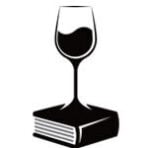Washington State University

Washington State University (WSU), a public land-grant university founded in 1890, has become one of the Pacific Northwest’s most important hubs for wine education and research. Anchored by its state-of-the-art Wine Science Center (WSC) in Richland, the university offers a uniquely industry-connected program tailored to the needs of the Washington wine sector, with a particular focus on the Columbia and Yakima Valleys.
A Grounded, Hands-On Education
At the undergraduate level, WSU offers a Bachelor of Science in Enology and Viticulture through its Tri-Cities campus, developed in partnership with Columbia Basin College. The program integrates coursework in viticulture, enology, chemistry, and engineering with practical experience in WSC’s bonded teaching winery and surrounding vineyards. Students are required to complete an internship and a senior capstone project—often tied directly to challenges faced by regional wineries, such as cold stabilization techniques or stemless grape pressing.
For those seeking advanced study, WSU’s M.S. and Ph.D. programs in Food Science with viticulture and enology concentrations are based on the Pullman campus. These research-heavy graduate programs serve as a pipeline for academic, governmental, and industry-focused scientific careers.
Faculty, Alumni, and Industry Impact
WSU’s wine faculty includes figures like Dr. Dale Woerner, known for his work in vineyard engineering and mechanization, and Dr. John Bowers, who specializes in grape chemistry. Alumni of the program are well-represented across Washington’s winemaking community, including roles at high-profile producers such as Cayuse Vineyards and Sleight of Hand Cellars.
Graduates are recognized for their fluency in modern winery technologies and laboratory procedures. Thanks to WSU’s emphasis on practical training, alumni often transition seamlessly into positions in quality control, vineyard operations, and cellar management.
Facilities, Features, and Identity
Opened in 2015, the Wine Science Center is a flagship facility that includes a bonded commercial-scale teaching winery, research labs, classrooms, and a public tasting room that features wines crafted by students. No other wine program in the U.S. offers this combination of academic rigor, commercial winemaking infrastructure, and regional integration.
The program emphasizes the grape varieties and agricultural conditions of eastern Washington—Cabernet Sauvignon, Merlot, and Syrah grown in arid climates with precision irrigation and mechanization. Students receive training not just in grape and wine science, but also in the engineering and quality assurance practices essential to large-scale production.
Pros, Cons, and Positioning
Strengths
-
Commercial-grade winery and vineyard training facility
-
Embedded in the Columbia Valley AVA, near major wine producers
-
Strong public-private partnerships (e.g., Château Ste. Michelle, the Washington State Wine Commission)
-
High employability of graduates
Limitations
-
Smaller student cohorts and lower visibility than powerhouse programs like UC Davis
-
While research-active, it’s still building its reputation as a national research leader
Conclusion
WSU’s wine program isn’t the biggest, but it punches well above its weight. With intimate class sizes, strong ties to regional producers, and an impressive technical infrastructure, it offers a highly focused, career-oriented education. For students who want to learn wine from inside the industry—rather than just from the outside—Washington State delivers a compelling, terroir-driven experience rooted in the reality of modern American winemaking.
